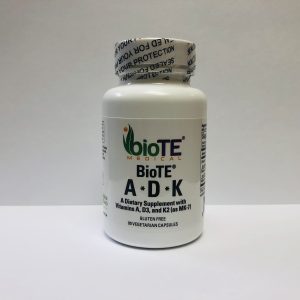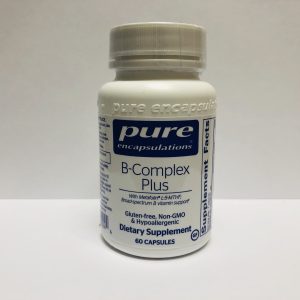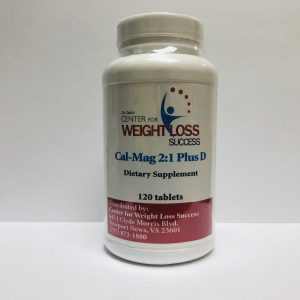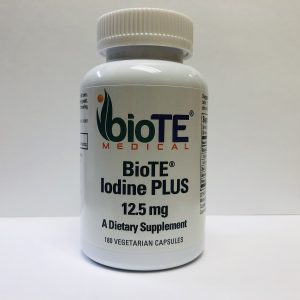Let’s do a Micronutrient Overview. They are different from macronutrients, which are what give us calories or energy. Those are fat, protein, and carbohydrate. Micronutrients are vitamins and minerals. We’ll go over what the key vitamins and minerals are and what are the components of a good multivitamin. We’ll talk about pharmacy grade vs over the counter (OTC). And, finally, what do I recommend?
Micronutrients are the vitamins and minerals your body requires in small amounts to keep you functioning properly. We can’t live without these things. Some of them we can’t store well so we need those daily. Some of them we can store for a certain period of time. A vitamin deficiency is not something that happens in a day. It occurs over a long period of time. They are essential, non-caloric nutrients that assist our body in biochemical equations. They make the biochemical equations run more efficiently. Minerals are elements also needed in your body. Most of them can be obtained from food. Vitamins are typically divided into two groups: water soluble (B-complex and C) and fat soluble (A, D, E, and K).
We’ll start with the Fat Soluble Vitamins. Vitamin A and most of these vitamins are better taken in combinations. Any one vitamin by itself won’t do you a whole lot. For example, Vit D is best taken in combination with Vit A and Vit K. All the vitamins work in synergy with each other. Vit A is very important in vision. It’s also very important in maintaining the eyes and skin, but also bone and tooth growth as well as immunity. There typically isn’t one thing that each vitamin does. They’re involved in lots of different things.
 Vitamin D has gotten a lot of publicity in the media over the past few years. It’s very important in bone health. It aids in bone mineralization by increasing calcium absorption. Many years ago the thought was we had to take massive doses of calcium when what we really needed was Vit D. Very likely most of us get in plenty of calcium. The problem is in the absorption because we’re not getting enough Vit D. Half the American population runs low on Vitamin D. Close to 90% of my weight loss patients run low on Vit. D. It’s close to 95% of the surgical patients. The higher someone’s weight, the more likely they are going to be vitamin D deficient. Vitamin D is very important in weight maintenance or weight preservation. When you have low Vitamin D there is a very close association that people with low levels have a much harder time losing weight and a much easier time gaining weight. It actually acts more like a hormone than a vitamin because it does so many different things. It helps prevent certain cancers, heart disease, and neuropsychological problems. If someone asks me what vitamins to take I always start out by saying a good multivitamin. I also tell just about everybody they need extra Vitamin D. It doesn’t matter if you’ve had surgery or not. In theory you can overdose on Vitamin D. You’d have to take massive doses. If you take it with Vitamin A and Vitamin K, you can’t actually overdose on it because they work in synergy. They help each other out.
Vitamin D has gotten a lot of publicity in the media over the past few years. It’s very important in bone health. It aids in bone mineralization by increasing calcium absorption. Many years ago the thought was we had to take massive doses of calcium when what we really needed was Vit D. Very likely most of us get in plenty of calcium. The problem is in the absorption because we’re not getting enough Vit D. Half the American population runs low on Vitamin D. Close to 90% of my weight loss patients run low on Vit. D. It’s close to 95% of the surgical patients. The higher someone’s weight, the more likely they are going to be vitamin D deficient. Vitamin D is very important in weight maintenance or weight preservation. When you have low Vitamin D there is a very close association that people with low levels have a much harder time losing weight and a much easier time gaining weight. It actually acts more like a hormone than a vitamin because it does so many different things. It helps prevent certain cancers, heart disease, and neuropsychological problems. If someone asks me what vitamins to take I always start out by saying a good multivitamin. I also tell just about everybody they need extra Vitamin D. It doesn’t matter if you’ve had surgery or not. In theory you can overdose on Vitamin D. You’d have to take massive doses. If you take it with Vitamin A and Vitamin K, you can’t actually overdose on it because they work in synergy. They help each other out.
Vitamin E is a very important antioxidant. It protects cell membranes and helps reduce tissue inflammation. There’s getting to be some evidence that massive doses of Vit E aren’t very helpful either. It could potentially cause other problems.
Vitamin K is very important in blood clotting and prevents abnormal bone formation. You don’t just want to form bone, but you want to form good, healthy and strong bone.
Water Soluble Vitamins are Vitamin C and B vitamins. Vitamin C is also an extremely important antioxidant. It helps maintain connective tissue, supports the immune system, and boosts iron absorption. Connective tissue is what holds us together. It holds the muscle to the bones and the bones to the bones. Vitamin C deficiency is scurvy back hundreds of years ago. People were falling apart. Old scars were actually falling apart. It caused loose and lax joints. If you’re iron deficient, taking iron with Vit C will actually help absorb it.
 There are 8 different B Vitamins: thiamine, niacin, riboflavin, folate, B6, B12, biotin and pantothenic acid. They aid in energy metabolism by helping the body metabolize carbs, protein and fats. We often think of the B vitamins as energy vitamins. B vitamins themselves don’t give you energy. What they do is make the energy producing equations run much more efficiently. Symptoms of low B Vitamins: exhaustion, irritability, anemia, depression, forgetfulness, loss of appetite, skin problems, and impaired immunity. Immunity pops up all the time with most of the vitamins.
There are 8 different B Vitamins: thiamine, niacin, riboflavin, folate, B6, B12, biotin and pantothenic acid. They aid in energy metabolism by helping the body metabolize carbs, protein and fats. We often think of the B vitamins as energy vitamins. B vitamins themselves don’t give you energy. What they do is make the energy producing equations run much more efficiently. Symptoms of low B Vitamins: exhaustion, irritability, anemia, depression, forgetfulness, loss of appetite, skin problems, and impaired immunity. Immunity pops up all the time with most of the vitamins.
Let’s talk about minerals. They are inorganic, non-caloric substances that your body requires in small amounts to ensure proper functioning. We need them to help run those biochemical reactions and for structure. They perform a number of essential duties including maintaining water balance, assisting muscular contraction, and transmitting nerve impulses. Minerals are extremely important and each of them does different things.
 Calcium is the most common mineral in our body because it’s bone formation. It’s essential for bone formation, water balance regulation, muscle contraction and relaxation, BP maintenance, and secretion of essential enzymes and hormones. If you don’t have calcium you’d go into tetanus where all your muscles contract. One of the blood pressure medications works as a calcium channel blocker. It helps to lower blood pressure. But in order to maintain our blood pressure we need calcium. It also helps in the secretions of essential enzymes and hormones.
Calcium is the most common mineral in our body because it’s bone formation. It’s essential for bone formation, water balance regulation, muscle contraction and relaxation, BP maintenance, and secretion of essential enzymes and hormones. If you don’t have calcium you’d go into tetanus where all your muscles contract. One of the blood pressure medications works as a calcium channel blocker. It helps to lower blood pressure. But in order to maintain our blood pressure we need calcium. It also helps in the secretions of essential enzymes and hormones.
Phosphorus goes along with Calcium. It’s important in bone mineralization and energy metabolism. It’s also the “money” of our overall energy metabolism because our overall energy is measured in ATP (adenosine triphosphate-which is phosphorus). We can’t have energy without phosphorus.
Magnesium is very important in bone function but also muscle function. I recommend just about everybody needs extra magnesium. It functions is about 3 or 400 different equations throughout your body. One of the more important ones is muscle function. If you’re prone to muscle cramps or muscle soreness magnesium is one of the best things you can take. It also helps to keep bowels regular. It’s a working ingredient in milk of magnesia. If you take magnesium palates it will help bowels stay more regular. It can help with muscle function in the intestinal tract (which is a muscle).
People are often very careful about their sodium content. We can’t live without sodium. We would die very quickly without salt. It helps maintain a pH balance. It’s also essential in muscle and nerve function. It regulates our body water as well as blood pressure.
We also can’t live without potassium. It maintains fluid & electrolyte balance, assists in nerve function, and muscle contraction. It people have low potassium their muscle contraction will be very poor. They often think about taking bananas if they have cramps. Typically that’s a magnesium problem, not potassium.
 Iodine is essential for thyroid function. Most people don’t get enough iodine. It used to be added in all kinds of food. It’s been taken out of almost all food and replaced with bromine. Bromine has been taken off the market in Europe because it’s potentially a toxin. Potentially these toxins have been added to our food. Now most Americans don’t get enough iodine anymore. There’s a little bit in iodized salt but not enough to really matter.
Iodine is essential for thyroid function. Most people don’t get enough iodine. It used to be added in all kinds of food. It’s been taken out of almost all food and replaced with bromine. Bromine has been taken off the market in Europe because it’s potentially a toxin. Potentially these toxins have been added to our food. Now most Americans don’t get enough iodine anymore. There’s a little bit in iodized salt but not enough to really matter.
Iron helps carry oxygen in blood and required for energy metabolism. We can’t live without iron. Iron deficiency is one of the most common nutrient deficiencies. It’s more common in young women, especially if they’re having heavier cycles. Symptoms of iron deficiency include fatigue, weakness, and impaired immunity. Again, immunity pops in there. If you’re low on iron, it’s hard to maintain immune function.
We talk about immune function with zinc. You often see it advertised on TV. If you think you’re coming down with a cold or exposed to a cold than you take high dose zinc. They sell a bunch of products, but what they’re based on is high dose zinc. Zinc helps activate many enzymes. Most people could use extra zinc anyway. It also can help improve testosterone function. Magnesium also helps with testosterone function.
Chromium is also a mineral we talk about all the time when talk about cravings. It can regulate blood sugar swings. It works closely with insulin to regulate and release energy from glucose. Low levels impair insulin activity. Just having low levels of chromium means insulin won’t do what it normally needs to do as effectively.
What are the components of a good multivitamin? There are a lot of brands out there. Let the buyer beware because the FDA does not regulate multivitamins. A good multivitamin should provide all the items and doses close or exceeding the RDA (recommended daily allowance). You just have to remember the RDA is the absolute minimum amount which will help prevent a deficiency syndrome. It has nothing to do with an optimal dose. Some people are afraid there will be a problem if they take more than the RDA. Absolutely not!! For most nutrients the actual optimal dose is unknown. The other end of the spectrum is that there’s probably not a whole lot of benefit of taking 5000% of what the RDA is. It’s probably somewhat superfluous.
The pharmaceutical grade vs OTC. Pharmaceutical grade vitamins basically mean they’re made under the conditions set forth by the American Board of Pharmacy. This means that, hopefully, you can really trust its content as well as ensure the best absorption and utilization. It’s very important that vitamins need to be absorbed well. Your body has to utilize it. I encourage people to use pharmaceutical grade when buying vitamins. If you’re not going to use pharmaceutical grade vitamins I would recommend choosing a vitamin from a corporation that made its name making vitamins. This is what the company does. An example would be One a Day or Centrum. I don’t recommend using generic vitamins because you have no idea what’s really in them. Labels may look exactly the same between a pharmaceutical grade and an OTC. But, that doesn’t mean that’s what’s inside there. There may be a lot of things in there that you don’t want. OTC vitamins and minerals are not held to the same high standards. There have been a number of studies that show content may not match what is listed on the bottle. Let the buyer beware.
We have pharmaceutical grade vitamins in our store. It does guarantee that what you’re getting is what you pay for. Just about everybody ought to take a multivitamin. The main reason is the typical American diet just doesn’t get what it really needs to get. Even if we’re trying to eat  as healthy as possible (green and clean), part of the problem is a lot of the soil has been contaminated. And we also can’t get all the vitamins and minerals from the soil anymore. I encourage just about everyone to take Vit D. Other important vitamins and minerals are the essential fatty acids (EFA’s), B-Complex, magnesium/potassium, calcium (if you’re getting Vit D you’re probably getting enough Calcium), chromium, chelated iron (the iron molecules on this chelated iron are connected to a couple amino acids. They are more efficiently absorbed. Therefore you can take a smaller dose, which can reduce some of the side effects), and potentially a carb blocker (can decrease the amount of carbohydrate that’s absorbed and keeping the carbohydrate low by converting the carbohydrate that would have been absorbed into a non-absorbable carbohydrate. It’s turned into a fiber which can subsequently help with constipation).
as healthy as possible (green and clean), part of the problem is a lot of the soil has been contaminated. And we also can’t get all the vitamins and minerals from the soil anymore. I encourage just about everyone to take Vit D. Other important vitamins and minerals are the essential fatty acids (EFA’s), B-Complex, magnesium/potassium, calcium (if you’re getting Vit D you’re probably getting enough Calcium), chromium, chelated iron (the iron molecules on this chelated iron are connected to a couple amino acids. They are more efficiently absorbed. Therefore you can take a smaller dose, which can reduce some of the side effects), and potentially a carb blocker (can decrease the amount of carbohydrate that’s absorbed and keeping the carbohydrate low by converting the carbohydrate that would have been absorbed into a non-absorbable carbohydrate. It’s turned into a fiber which can subsequently help with constipation).
If you have questions don’t hesitate to pick up the phone, text us (757-873-1880) or send us an email: [email protected]






 Cat Keller has a wealth of experience in marketing, e-marketing, advertising and customer service and manages our Weight Loss Nutritional Store. She is always planning something fun and exciting. special events, discounts, giveaways – it’s never a dull moment. She is happy to help you with questions you may have regarding our products or services. Cat is a graduate of William & Mary, where she studied Government/Pre-Law and minored in Marketing.
Cat Keller has a wealth of experience in marketing, e-marketing, advertising and customer service and manages our Weight Loss Nutritional Store. She is always planning something fun and exciting. special events, discounts, giveaways – it’s never a dull moment. She is happy to help you with questions you may have regarding our products or services. Cat is a graduate of William & Mary, where she studied Government/Pre-Law and minored in Marketing.